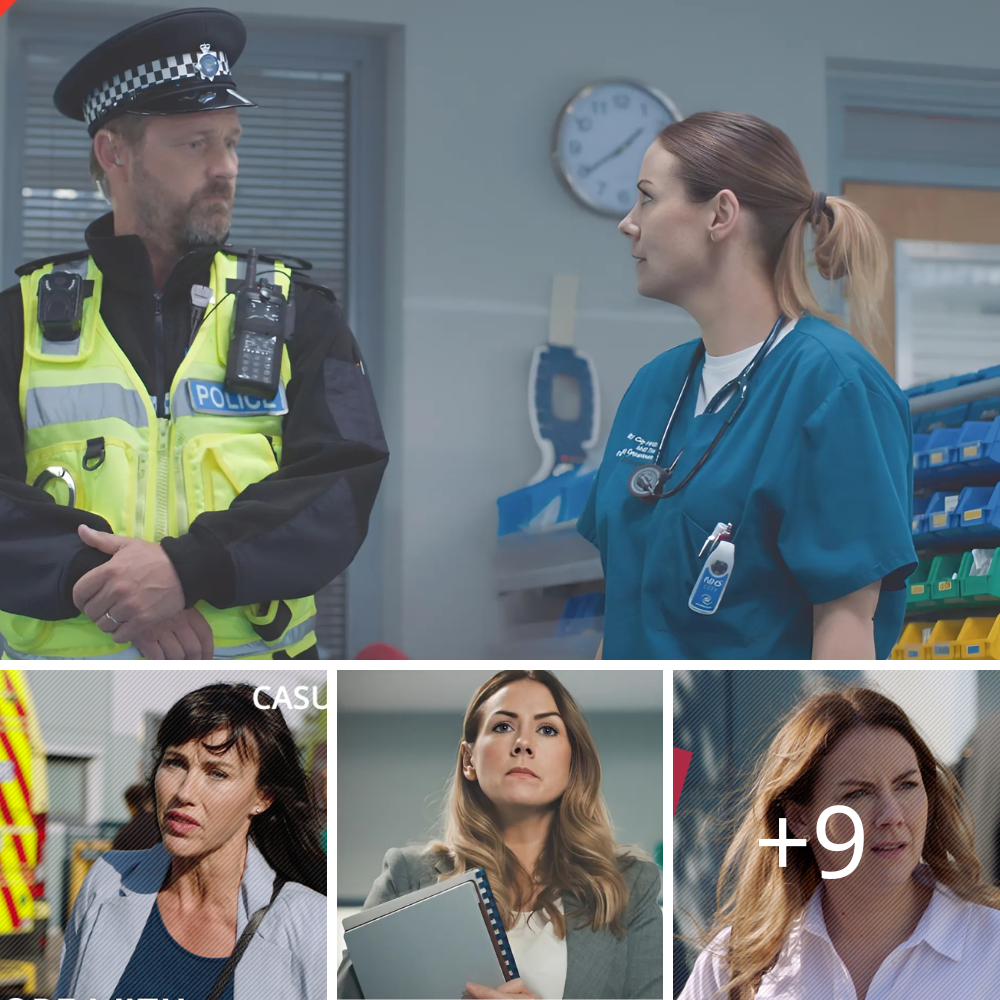A storm brews in Holby’s Emergency Department this week as unresolved trauma bubbles to the surface, pushing both professional and personal relationships to the brink. At the centre of it all is Dr. Stevie Nash, who finds herself walking a fine line between compassion and confrontation when she realises a colleague is in deeper trouble than anyone knew.
Matthew, who has been showing signs of strain in recent episodes, is clearly not coping. The pressures of the job seem to be hitting harder than usual, but Stevie starts to suspect there’s more to his behaviour than just stress. As his actions become increasingly erratic and unpredictable, Stevie’s instincts as both a doctor and a friend tell her something is seriously wrong.
Her concerns only deepen as Matthew starts lashing out, missing key details in patient care and distancing himself from the team. Stevie, never one to sit back and watch someone suffer in silence, decides to intervene. At first, she tries the gentle approach—checking in, offering support, and encouraging him to open up. But Matthew remains defensive and closed off, refusing to acknowledge there’s an issue.
When Stevie pushes harder, the situation begins to spiral. Matthew, cornered and clearly overwhelmed, reacts by going on the offensive. In a heated moment, he makes serious accusations against Stevie, questioning her professionalism in front of colleagues. It’s a shocking move—one that catches Stevie completely off guard and threatens to damage her hard-earned reputation.
It soon becomes clear to those around them that Matthew’s allegations are less about Stevie’s actions and more about his need to deflect attention from his own struggles. What Stevie has identified is not just emotional burnout—it’s post-traumatic stress disorder, something Matthew has been hiding and perhaps not even fully acknowledging himself.
The fallout from the confrontation ripples through the ED. Stevie is left reeling, caught between hurt and concern. She knows Matthew’s attack was driven by pain, but it doesn’t make the betrayal any easier to swallow. Colleagues are divided, unsure of how to react or who to believe, and the usually cohesive team finds itself on shaky ground.
Despite the personal blow, Stevie remains focused on what matters most—getting Matthew the help he needs. She takes her concerns to senior staff, risking further backlash in the hope that someone will step in before things get worse. Her persistence pays off when a more formal investigation into Matthew’s conduct begins, prompting him to reluctantly seek counselling.
This episode is a raw and emotional exploration of how trauma can shape behaviour and fracture even the strongest of relationships. Matthew’s journey is a sobering reminder that even the most capable and resilient staff can reach a breaking point. His struggle with PTSD is portrayed with unflinching honesty, shedding light on the silent battles fought behind the scenes in high-pressure medical environments.
Meanwhile, Stevie’s own strength is put to the test. Known for her confidence and no-nonsense attitude, this episode allows viewers to see another side of her—one defined by empathy, loyalty, and vulnerability. She could have walked away, chosen to protect herself and let Matthew deal with the consequences alone. But instead, she digs deeper, confronting not only him but also the painful truth that sometimes helping someone means risking everything.
The emotional weight of the episode is balanced by quieter moments of reflection and solidarity. Rida and Max offer Stevie quiet support, and there’s a touching scene where Dylan offers an uncharacteristically heartfelt pep talk, reminding her that doing the right thing often comes at a cost—but it’s worth it.
By the episode’s end, there’s no quick resolution. Matthew is beginning a long road to recovery, and Stevie is left dealing with the personal and professional fallout. But there’s hope too—a sense that healing is possible, even when relationships are bruised and trust is shaken.
Casualty delivers one of its most powerful episodes of the season, showcasing the reality of trauma in the workplace and the toll it takes on those who dedicate their lives to saving others. It’s a gripping hour of television that reminds viewers that even heroes need help sometimes—and that compassion, not judgment, should always be the first response.
